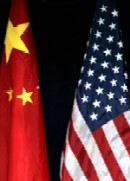Chinese skills give "frank" Rudd an edge in Beijing
 Beijing- He had recently angered China by criticizing its human-rights record and its handling of Tibet while he stood next to US President George W Bush.
Beijing- He had recently angered China by criticizing its human-rights record and its handling of Tibet while he stood next to US President George W Bush.
He made similar, if slightly toned-down, remarks in his first public engagement in Beijing Wednesday.
Yet after Australian Prime Minister Kevin Rudd delivered the first speech in Chinese by a Western leader in China, all was forgiven as he was welcomed with a mixture of curiosity and admiration by students at Beijing University.
"A strong relationship, and a true friendship, are built on the ability to engage in direct, frank and ongoing dialogue about our fundamental interests and future vision," Rudd told more than 300 students plus dozens of university staff, Australian officials and journalists.
As well as Tibet and human rights, the Australian leader showed his frankness by discussing calls for a boycott of the August Olympics in Beijing and China's environmental problems.
"Some have called for a boycott of the Beijing Olympics because of recent problems in Tibet," Rudd said. "As I said in London on Sunday, I do not agree.
"I believe the Olympics are important for China's continuing engagement with the world."
"The global community looks forward to China fully participating in all the institutions of the global rules-based order, including in security, in the economy, in human rights, in the environment," Rudd said.
Rudd displayed his knowledge of China's culture and modern history, lightly peppering his speech with idioms, references to famous Chinese writers and one or two light-hearted remarks.
"Because I was a graduate in Chinese, the then-Australian government decided to send me to Sweden - where in those days, I could barely find a decent Chinese restaurant," the former diplomat said, drawing a smattering of laughter.
"I eventually made it to China in 1984 when I started work at the Australian embassy," Rudd said.
He showed modesty, a traditional virtue in China, by saying his Chinese was getting "worse and worse" and mocking his "ugly" calligraphy.
"It was great - his Chinese is really not bad," said a first-year philosophy student who attended the 30-minute speech.
Professor Li Yunfan of Beijing University's School of International Relations said Rudd's background in Chinese studies would make Chinese people more interested in Australia.
"Generally, if a leader can speak and communicate with the language of the visited country, he will be closer to this country's people and leaders," Li told Deutsche Presse-Agentur dpa.
"Many leaders narrow their gap with the Chinese merely by saying, 'Hello,' or 'I love China,' in the Chinese language," Li said. "Rudd's speech and communication in Chinese undoubtedly show his special feeling and deep research in Chinese culture."
Rudd apparently followed diplomatic protocol in formal meetings with President Hu Jintao and other Chinese leaders by speaking in English and using interpreters.
The official China Daily hailed him as "a scholar of Chinese history."
"He speaks Chinese fluently," the newspaper said. "When he became prime minister, Australia had as its head of government a Chinese expert unrivaled in other world capitals."
Li said mentioning the sensitive issues of human rights, democracy and Tibet in Chinese would not damage Rudd's standing in China.
"I don't think talking about human rights and democracy will offend Chinese people," he said.
"Although they are sensitive issues, nowadays, China and Beijing University have undergone thorough changes," Li said. "Any Chinese person who has a modern spirit will not avoid talking about political topics with people anywhere in the world."
Rudd spoke on the same campus where members of China's ruling Communist Party once preached revolution and that, several decades later, became the hotbed of the
1989 student-led democracy movement.
But he did not go as far as mentioning the event known as "6-4" after the June 4 military crackdown that ended the 1989 movement. Not this time, anyway.(dpa)